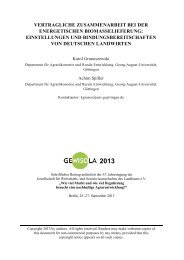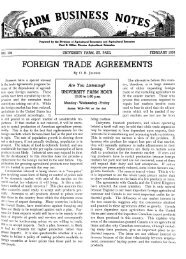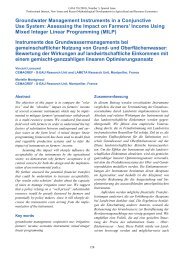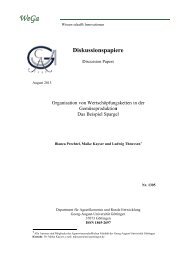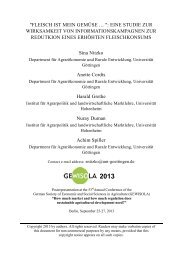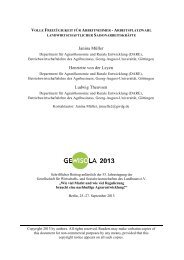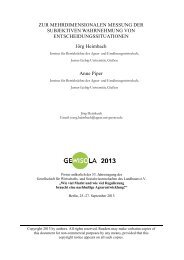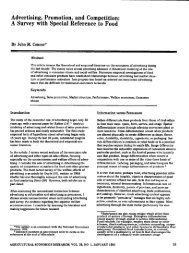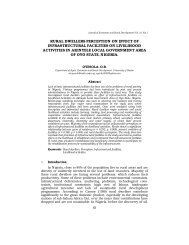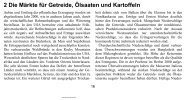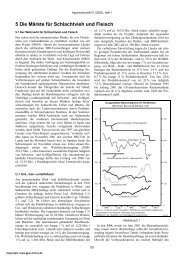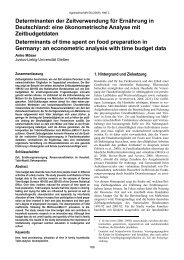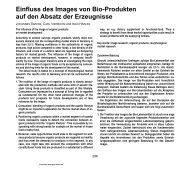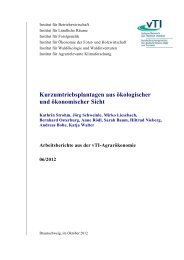District Institutes of Education and Training - Teacher Education
District Institutes of Education and Training - Teacher Education
District Institutes of Education and Training - Teacher Education
You also want an ePaper? Increase the reach of your titles
YUMPU automatically turns print PDFs into web optimized ePapers that Google loves.
<strong>District</strong> <strong>Institutes</strong> <strong>of</strong> <strong>Education</strong> <strong>and</strong> <strong>Training</strong>: A Comparative Study in Three Indian States<br />
Chapter 5 In-service <strong>Education</strong> for <strong>Teacher</strong>s<br />
5.1 Introduction<br />
The preceding chapters have illustrated that teaching <strong>and</strong> pre-service training are<br />
dominated by a transmission model <strong>of</strong> teacher education that is outmoded in the<br />
face <strong>of</strong> recent change initiatives in elementary education. This chapter reviews<br />
DIETs’ approaches to in-service teacher refreshment, by providing illustrations <strong>of</strong><br />
programmes observed by the research team. It demonstrates that there is variation<br />
in approaches across the DIETs, <strong>and</strong> some significant movement towards<br />
participatory work with teachers that if sustained, can over time come to challenge<br />
more ‘traditional’ approaches.<br />
5.2 In-service training programmes<br />
5.2.1 Programme format: tensions in decentralisation<br />
DIETs organised their training programmes around an annual calendar that sets<br />
out what they intend to <strong>of</strong>fer during the year. Their calendar is a modified version<br />
<strong>of</strong> the calendar developed by the SCERT. For reasons related to DIET staffing <strong>and</strong><br />
skills, <strong>and</strong> perceptions <strong>of</strong> the nature <strong>of</strong> decentralisation, sample DIETs (except<br />
Surat) had rarely developed their own training programme in response to felt<br />
needs in the <strong>District</strong>. They functioned primarily as sites <strong>of</strong> delivery <strong>of</strong> programmes<br />
developed <strong>and</strong> funded either at the national level, or at the State level, or by an<br />
external intervention such as DPEP or Lok Jumbish.<br />
These programmes come as packages, with a centrally pre-defined length <strong>and</strong><br />
content, <strong>and</strong> target <strong>of</strong> numbers <strong>of</strong> teachers to be covered. The substance <strong>of</strong> those<br />
programmes tends to be related to informing teachers about new ‘packages’, or a<br />
textbook, or upgrading subject content knowledge. DIET staff themselves were<br />
critical <strong>of</strong> this centralised approach:<br />
TT1 Till you involve a primary teacher, there is no meaning in whichever<br />
package you bring, because he has to teach. Whatever difficulties are there<br />
he has to face them, not the person who is sitting in DIET. You have made<br />
a module sitting in Bhopal <strong>and</strong> sent it here saying teach this.<br />
TT2 Situations are different everywhere. The situation <strong>of</strong> A is different from B<br />
(MP/DHA/29.3.00).<br />
In this mode <strong>of</strong> programme design, teachers are also not consulted – <strong>and</strong> this is to<br />
ignore the contribution that teachers might make through their local knowledge.<br />
As a teacher in Dhar <strong>District</strong> pointed out:<br />
Instead <strong>of</strong> this, what a teacher wishes should become the basis <strong>of</strong> all preparation,<br />
because we are the people who are in touch with them, not you. So if our<br />
situation, our problem, our curriculum is brought to the forefront their [tribal<br />
DFID 93



